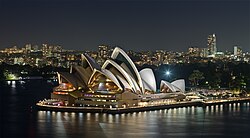| << | October 1973 | >> | ||||
|---|---|---|---|---|---|---|
| Su | Mo | Tu | We | Th | Fr | Sa |
| 1 | 2 | 3 | 4 | 5 | 6 | |
| 7 | 8 | 9 | 10 | 11 | 12 | 13 |
| 14 | 15 | 16 | 17 | 18 | 19 | 20 |
| 21 | 22 | 23 | 24 | 25 | 26 | 27 |
| 28 | 29 | 30 | 31 | |||



The following events occurred in October 1973:
Contents
- October 1, 1973 (Monday)
- October 2, 1973 (Tuesday)
- October 3, 1973 (Wednesday)
- October 4, 1973 (Thursday)
- October 5, 1973 (Friday)
- October 6, 1973 (Saturday)
- October 7, 1973 (Sunday)
- October 8, 1973 (Monday)
- October 9, 1973 (Tuesday)
- October 10, 1973 (Wednesday)
- October 11, 1973 (Thursday)
- October 12, 1973 (Friday)
- October 13, 1973 (Saturday)
- October 14, 1973 (Sunday)
- October 15, 1973 (Monday)
- October 16, 1973 (Tuesday)
- October 17, 1973 (Wednesday)
- October 18, 1973 (Thursday)
- October 19, 1973 (Friday)
- October 20, 1973 (Saturday)
- October 21, 1973 (Sunday)
- October 22, 1973 (Monday)
- October 23, 1973 (Tuesday)
- October 24, 1973 (Wednesday)
- October 25, 1973 (Thursday)
- October 26, 1973 (Friday)
- October 27, 1973 (Saturday)
- October 28, 1973 (Sunday)
- October 29, 1973 (Monday)
- October 30, 1973 (Tuesday)
- October 31, 1973 (Wednesday)
- References





